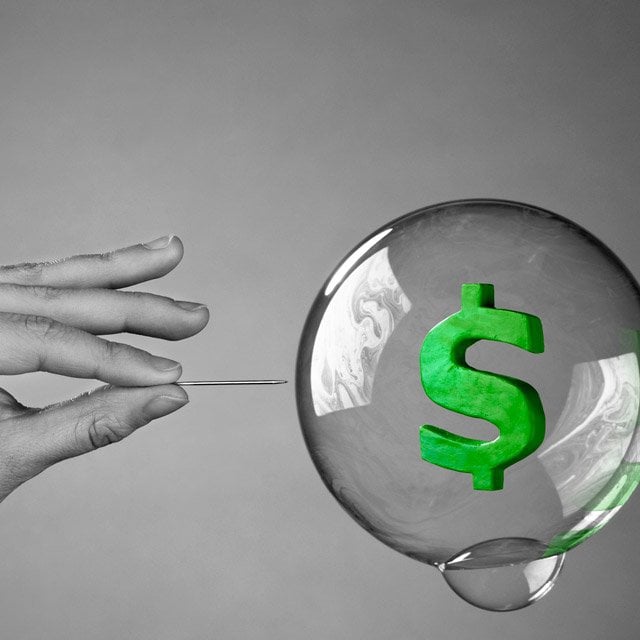Goldman's Top Stock Analyst Is Waiting for AI Bubble to Burst

What You Need to Know
It happened with dot-com companies in the late 1990s and more recently with cryptocurrencies, says Jim Covello.
One survey found that fewer than half of companies investing in AI have yet to see a significant return.
AI has shown the promise of making some jobs like coding more efficient, but not by nearly enough to justify the expense.
Over three decades on Wall Street, Jim Covello has learned how painful it can be to bet against an inflating tech stock bubble. The market has a way of minting riches, month after month, even after it’s clear the latest breakthroughs aren’t playing out quite as expected.
It happened with dot-com companies in the late 1990s and more recently with cryptocurrencies. And Covello, the head of equity research at Goldman Sachs Group Inc., says it’ll likely happen with artificial intelligence, too, making it dangerous, if not outright foolish, to start wagering against the likes of Nvidia Corp.
And yet, he has no doubt that the reckoning is coming. It might not be this year or even next year, for that matter, but at some point, he says, it’s happening.
As he sees it, the hundreds of billions of dollars companies are plowing into AI won’t set off the next economic revolution — or even rival the benefits of the smartphone and the Internet. And when that becomes clear, all the stocks that have surged on the back of its promise will come sliding down, too.
“Most technology transitions in history, particularly the ones that have been transformational, have seen us replace very expensive solutions with very cheap solutions,” said Covello, who first made a name for himself at Goldman as a tech stock analyst. “Potentially replacing jobs with tremendously costly technology is basically the polar opposite.”
Covello is emerging as a leader of a small but growing cohort of market watchers who are casting doubt on a crucial tenet of the rally that’s added nearly $16 trillion to the S&P 500 since late 2022.
The idea that the dazzling power of large-language models will usher in the next great stage of capitalism, one where corporate profits will boom as more and more work is handed over to intelligent machines, boosting efficiencies and accelerating growth.
There are plenty of believers. Jamie Dimon, JPMorgan Chase & Co.’s chief executive officer, has said he’s convinced that AI will unleash extraordinary changes, potentially as transformative as those brought by the printing press, the steam engine and electricity.
State Street Corp.’s chief investment strategist, Michael Arone, said it’s bringing a “prolonged and unprecedented productivity miracle.” Even inside Covello’s own firm, senior global economist Joseph Briggs estimates AI will ultimately automate a quarter of all work tasks and provide a boost to the pace of economic growth.
Such speculation, in turn, has set off a very concrete boom as the world’s biggest tech companies invest heavily in a bid to extend their dominance to the newest sphere.
That’s been a bounty for companies like Nvidia, Broadcom Inc. and Super Micro Computer Inc. that provide the hardware needed to power AI models. Even utilities have seen sales jump amid soaring demand from electricity thirsty data centers.
The problem though, the skeptics say, is that the commercial hopes for the technology may be significantly overblown, creating the risk of a stock-market correction if the tech Goliaths rethink their massive investments.
‘The Last Sucker’
David Bahnsen, founder and chief investment officer at the Bahnsen Group, has been preparing for that scenario. He has avoided Nvidia and other large tech stocks, anticipating what he sees as a potential “disaster.”
“The way we make money is to not be holding the bag when the last sucker places that trade on Cisco in March of 2000,” he said, referring to the precipitous drop that the hardware company’s shares suffered after the dot-com bubble burst. “A lot of people are going to lose money if they don’t trade out.”
So far, there’s been few signs of that. While tech stocks tumbled Wednesday on worries chipmakers will be pulled more deeply into a U.S.-China trade war, they are still holding near record highs.






